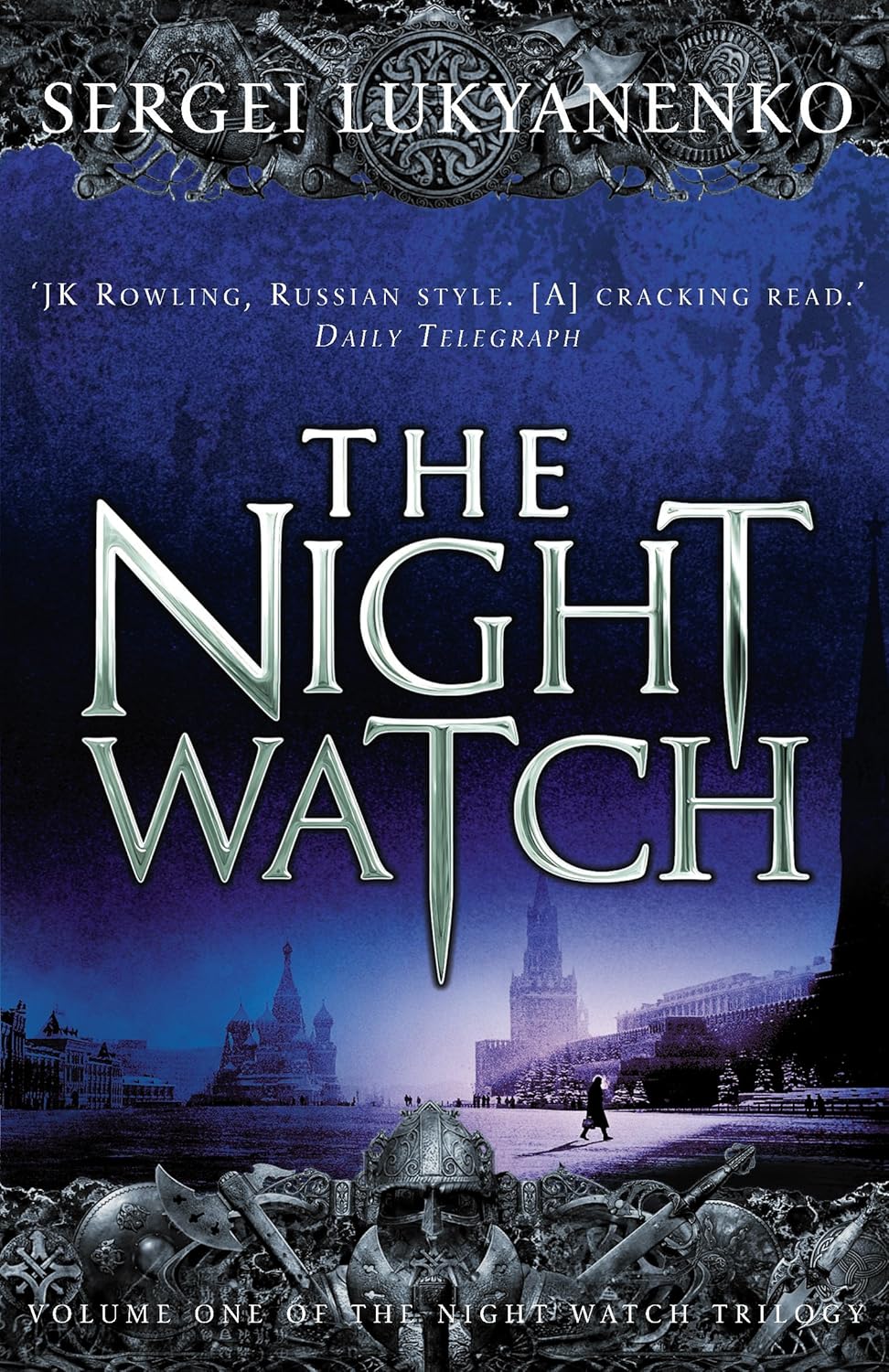While I've fallen out of love with it in recent years, I did once have a strong adoration for the now rather overexposed contemporary fantasy genre. Also referred to as urban fantasy, the idea of contemporary fantasy is that it's a fantastical story of magic and wizardry and monsters that nonetheless takes place in a relatively contemporary and modern-day setting. It's a genre that has in recent years become a lot more popular, with a trend that arguably began with a mix of Laurell K. Hamilton's Anita Blake novels, the World of Darkness role-playing games from White Wolf Publishing, and of course Joss Whedon's far more popular Buffy the Vampire Slayer television series. Recent years have seen a dramatic increase in the number of urban fantasy series out there, and you should find a half-dozen different series on the shelves of your local library or bookshop.
And one of my absolute favourite examples is and always will be Lukyanenko's own Night Watch, which was first published in 1998, and later translated to English in 2004-2006.

I originally dismissed it as being little more than a rip-off of J.K. Rowling's Harry Potter, largely because that was how it was being marketed. That was a decision which I later regretted because I discovered upon reading that it had very little to do with Harry Potter. Beyond the surface similarity of being about secretive modern-day magicians, and the fact that there's an owl in the story, there basically isn't anything that would link it to J.K. Rowling's story in terms of tone and style. It was a dark, gripping and beautifully-written novel which explored the secretive and mythical worlds while evoking an extremely different and unique sense of awe from me.
The world presented was one caught in a state of undeclared conflict, with secretive and mythically powerful beings called 'Others' who existed in a precarious and uneasy state of balance divided between the forces of Light and Darkness. To enforce this balance two organisations were created, one for each side so that they could police the actions of their immediate opposites. The Dark created an organisation by the name of the Day Watch, and the Light created the eponymous Night Watch. The protagonist of the story, Anton, is a light magician working as a member of the Night Watch, who winds up embroiled in a complex and nuanced conflict that explores the idea of 'balance' and what that actually means.
It's probably one of the best urban fantasy stories I've ever read, and it now pains me to admit that I can no longer bring myself to recommend it.
Sergei Lukyanenko has been quoted as making severely odious remarks with regards to recent political issues in Eastern Europe. While I won't be repeating those here, and you can likely find them on the internet somewhere, they're enough that I cannot bring myself to recommend these novels any more as they are written by someone whose views are too incompatible with my own sense of ethics and morality. I won't begrudge those who perhaps seek the novel out despite my words here, partly because its quality still ranks it as one of the all-time greats of fantasy, but I personally will not buy or read any more of his novels. For all of their quality, I can't justify it to myself to support or fund his views even indirectly.
I sincerely hope that this topic doesn't turn into a regular feature.
Mmmm I don't know about not recommending it. I understand your qualms about not wanting to financially support his work, but as readers I think we have a duty to consider why we can love the work of a repugnant person. Human beings are complex. We contradict our previous selves, we grow better and worse as people, we're often hypocritical; this adds to the stories that we write and read. If the insights about humanity and politics in "Night Watch" are an accidental beauty spawned from a hateful author, shouldn't that add to the work instead of shaming it?
ReplyDeleteIt's a complicated facet, I think, and one that I'm admittedly still wrestling with when it comes to my own personal conscience. I think I'd probably tone down from never recommending his work, but instead will probably recommend it with a rather big asterisk attached.
Delete